-
Keynote - Vision & Strategy
Fabien PinckaersHoàn tất
-
Opening Keynote - Unveiling Odoo 17
Fabien PinckaersHoàn tất
-
VanGO | Plennix's Van App that handles all your B2B and B2C outbound operations!
Tony FarhatHoàn tất
-
Odoo Enterprise for Nonprofits and NGOs
Wolfgang HallHoàn tất
-
Fund raising - Non profit organizations - a comprehensive ERP for admin, accounting and CRM
VAES BaudouinHoàn tất
-
How non-profit organizations can run & succeed using ERP Software
Peters DominiqueHoàn tất
-
Fresh Goods Unleashed: Mastering Trade in Odoo
Maximilian WaloHoàn tất
-
How to boost your pickings with Odoo
Helmut StritzingerHoàn tất
-
How-to: From Netsuite to Odoo
Marek ZádaHoàn tất
-
Empower Your Sales Team: Mastering Commissions Automation
Jared KipeHoàn tất

Chintan Shah is a successful serial entrepreneur who has aided numerous businesses in achieving digital transformation. His strong vision, extensive knowledge, and 25 years of experience make him the ideal partner in facilitating change. His accomplishments include founding a company with 1800 employees, assisting businesses in tripling their revenue within two to three years, increasing operational efficiency by 40%, and more. In addition, he has helped several companies, including Walt Disney, Southwest Airlines, Fox Sports, Isha Foundation, American Tire Depot, and others, in producing results of a similar nature for their operations.
When managing operations for a supermarket chain or hypermarket, the primary challenges are serving customers during peak hours, managing local and centralized procurements, stock expiries, orders, and customer retention.
Identifying this, we sought to provide a one-stop solution to these one-stop stores that could manage both B2B and B2C models and all the different operation sectors.
Leveraging Odoo with a particular focus on the POS and Sales modules, we developed a holistic solution for one of our clients: a B2C chain of supermarkets.
Challenges and Solutions
->Enhancing Order Processing Flow:
With the Odoo Sale Order module, we enhanced the B2B order placement, delivery preparation, and final deliveries. For B2C, we leveraged the Odoo POS module, streamlining everything from local procurements, centralized procurements for stockable products, and inventory management with relevant transfers to shipments, accounting, and financial reports.
->Enabling Faster Checkouts During Peak Hours:
A self-service checkout option was the perfect solution during peak hours or holidays. Leveraging the Odoo POS modules as an express counter, we suggested placing kiosks with scanners that customers could use for self-checkout. This feature also allowed them to use gift cards and promotional codes and redeem loyalty points.
->Managing Stock Effectively with Real-Time Updates:
We implemented the First Expire First Out (FEFO) practice and alerts on products nearing expiry. This data helped liquidate the products via marketing. We also enabled managing several combinations of price lists based on channels, customers, material, and sales units.
->Improving Customer Retention with Strategic Promotions:
With Odoo, the supermarket could efficiently manage all its promotions on a single platform. It included mix and match, multi-buy, combos, sales, deals, total discounts, loyalty, value-wise, brand-wise, articles target per invoice offer, basket promotion, and value-wise FOC.
Value for the Audience
->Improving Customer Experience and Retention:
With faster checkouts, integrated processes, well-managed orders, and lucrative promotions managed through a single platform, supermarkets can significantly improve their customer experience and retention.
->Making Promotions More Effective:
Creating promotions and managing them are two separate processes that are often time-consuming. With Odoo, markets can easily manage varied promotions running in parallel, categorize them, and analyze them better.
->Enhancing Stock Visibility and Management:
With Odoo’s automated processes and features, markets can efficiently manage their stocks, warehouses, and procurement and save 30% on operational costs.




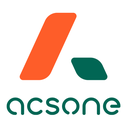






























![GLOBAL CREATIVE CONCEPTS TECH CO LTD [ iWesabe ]](https://odoocdn.com/web/image/event.sponsor/2232/image_128/GLOBAL CREATIVE CONCEPTS TECH CO LTD %5B iWesabe %5D?unique=cf3e01f)






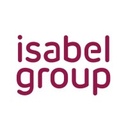






?unique=c0d1cff)
















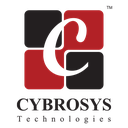
















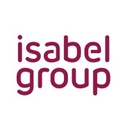


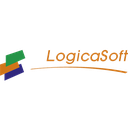




?unique=cda5e59)



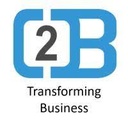




?unique=1da6f7d)




?unique=1059ac2)






